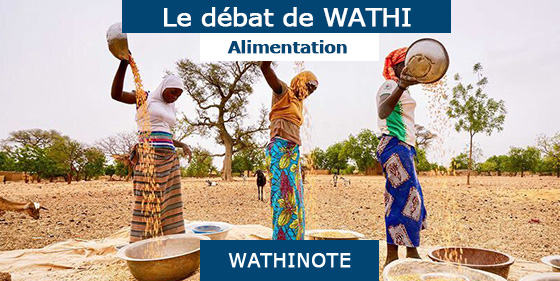

Author: Juan Vilata
Site of publication: Agrilinks
Date of publication: June 2, 2020
Type of publication: Article
At this stage of the COVID-19 pandemic, its impact on the most vulnerable populations and on food supply chains has mushroomed into a global concern. Senegal is no exception. In this West African country, seafood–especially the sardine-like fish called Sardinella–is a key staple food and an important source of animal protein. Equally important, the fishing industry is a major contributor to the gross domestic product (17%) and a source of diverse livelihoods, yielding close to 400,000 tons of seafood annually and supporting a 600,000 strong workforce encompassing artisanal fishers, fish intermediaries, and traditional small-scale fish processors.
Traditional fish processing, even though relatively small-scale, commands particular socioeconomic relevance in Senegal. Fish for local and regional markets is traditionally processed by associations of women, femmes transformatrices, who use sun-drying, braising, salting, smoking, and fermenting to prevent spoilage. These femmes transformatrices buy fish (Sardinella and other species) from the fishermen or fish intermediaries and, after processing it, they sell the final product to traders whom will bring it to the coastal and hinterland regions of Senegal and neighbouring countries such as Mali, Burkina Faso or Cote d’Ivoire. Some associations have obtained EU export accreditation. Additionally, fish from neighbouring countries of Guinea Bissau and Mauritania are imported, traded, and consumed in Senegal and processed with traditional techniques.
In response to COVID-19, the Government of Senegal issued a State of Emergency on March 23, 2020 which remains in effect. It imposes a curfew from 9:00 p.m. to 5:00 a.m.; restricted movement of people, vehicles, and goods; prohibition of parades, rallies, and public demonstrations on public roadways; closure of public meeting places; and prohibition of public or private meetings. Some measures were relaxed after May 11, 2020, but the curfew remains in place as well as limitations on interregional transport.
According to Dr. Babacar Sené, a Senegalese seafood expert, the pandemic has significantly impacted the economic activities of coastal communities. Fishers are allowed to go out to sea to fish, but they must abide by the curfew, which severely limits work routines and distances to which they can sail. In addition, they can no longer fish in the waters of neighbouring countries. Finally, key landing areas (Diamalaye, St. Louis, Mbour) have been closed, effectively halting fish movement through these points.
Another consequence is the diminished supply of fresh fish in the local markets and consequently increased prices. Sardinella supply has been particularly hardly hit: Sardinella schools usually congregate farther offshore in plankton-rich open waters.
The restrictions have also severely limited the women’s capacities for processing fish: some landing sites are only open four days a week; others, only three days a week. Fish must be processed within the curfew timeframe, resulting in a drastic drop in production: before two to three metric tons per day, now barely 500 kg per day. Yet even with this lower output, sales are poor as risks of spoiling are continuously increasing.
The pandemic has significantly impacted the economic activities of coastal communities. Fishers are allowed to go out to sea to fish, but they must abide by the curfew, which severely limits work routines and distances to which they can sail. In addition, they can no longer fish in the waters of neighbouring countries
There is no question that the supply of fresh fish in the local markets of Senegal – whether from local sources or from the wider West Africa area – has been very adversely affected. The reduction endangers the livelihoods and diets of producers and consumers. If the COVID-19 emergency persists many more weeks, it might have severe impacts on the nutritional status of vulnerable segments of the population, especially women and young children. As well, there are direct impacts of the pandemic on the fisheries community: fishers, processors, and sellers are at risk of contracting COVID-19 when working at the highly congested landing sites, docks, and markets.
The COVID-19 response in Senegal reveals how vulnerable the artisanal fisheries sector is to disruptions which jeopardise the livelihoods and wellbeing of those involved. The global pandemic illustrates how certain measures related to hygiene and sanitation (i.e. handwashing, proper food handling procedures, etc.) will also help curb the spread of both COVID-19 and seafood-borne diseases. Measures to improve the sanitary conditions along the supply chain will protect the income of artisanal seafood workers, safeguard them and the general public from seafood-related health hazards, and provide a solid barrier against potential future outbreaks of COVID-19-like viruses.
Les Wathinotes sont soit des résumés de publications sélectionnées par WATHI, conformes aux résumés originaux, soit des versions modifiées des résumés originaux, soit des extraits choisis par WATHI compte tenu de leur pertinence par rapport au thème du Débat. Lorsque les publications et leurs résumés ne sont disponibles qu’en français ou en anglais, WATHI se charge de la traduction des extraits choisis dans l’autre langue. Toutes les Wathinotes renvoient aux publications originales et intégrales qui ne sont pas hébergées par le site de WATHI, et sont destinées à promouvoir la lecture de ces documents, fruit du travail de recherche d’universitaires et d’experts.
The Wathinotes are either original abstracts of publications selected by WATHI, modified original summaries or publication quotes selected for their relevance for the theme of the Debate. When publications and abstracts are only available either in French or in English, the translation is done by WATHI. All the Wathinotes link to the original and integral publications that are not hosted on the WATHI website. WATHI participates to the promotion of these documents that have been written by university professors and experts
